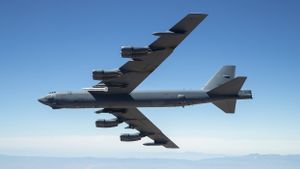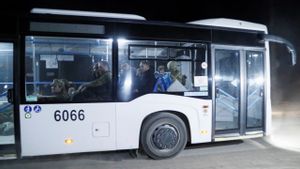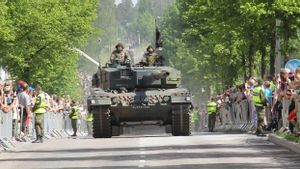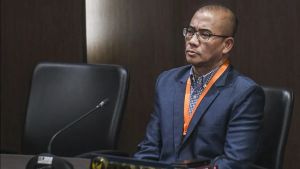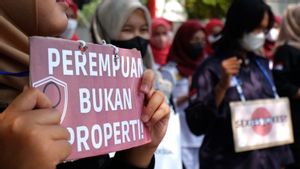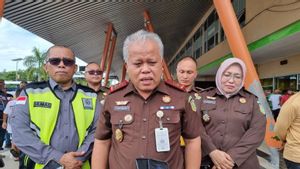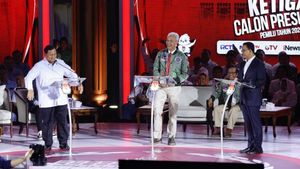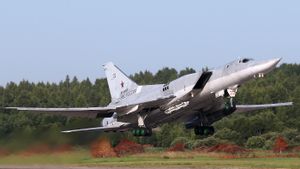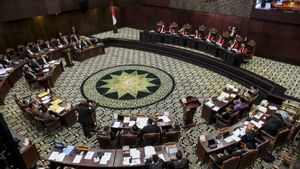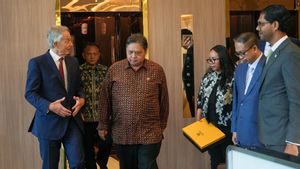
JAKARTA - Russia's parliament will consider banning the exchange of Russian prisoners of war with captured members of Ukraine's Azov Regiment, a spokesman said Tuesday.
The statement came after Ukrainian troops who had held out for 82 days in Azovstal, Mariupol laid down their arms and surrendered to Russia, followed by evacuations from the steel factory area.
The Azov Regiment, a nationalist militia now integrated into Ukraine's National Guard, became the face of resistance to Russian forces in the city, which saw some of the fiercest fighting in what Moscow called "special military operations" in Ukraine.
However, Moscow has described him as the main perpetrator of alleged radical anti-Russian nationalism and even Nazism, so it was deemed necessary to protect Ukrainian Russian speakers.
Vyacheslav Volodin, spokesman for the State Duma, said Azov members were "Nazi criminals" who should not be included in the prisoner swap.
"They are war criminals and we must do everything to bring them to justice," he said, cited from Reuters on May 18.
The Duma's website said he had asked the defense and security committee to prepare instructions for it.
Meanwhile, the Azov Regiment denies fascist, racist or neo-Nazi, while Ukraine says the unit has been reformed far from radical nationalist origins.
Kyiv also denies that Russian-speakers have been persecuted in Ukraine, saying accusations that they have a fascist agenda of violating human rights, which are repeated daily in the Russian media, are a baseless pretext for Russian aggression.
Moscow says more than 250 Ukrainian fighters at the Azovstal steel plant have surrendered. A total of 51 of them will be treated for serious injuries.
Earlier, Kremlin spokesman Dmitry Peskov said President Vladimir Putin had guaranteed that all would be treated "according to international standards".
Since the invasion on February 24, it is known that Russia and Ukraine have carried out several prisoner-of-war exchanges.
Separately, Ukraine's Deputy Defense Minister Hanna Malyar said that 'an exchange procedure will be carried out for the repatriation of soldiers.
SEE ALSO:
But Leonid Slutsky, one of Moscow's negotiators in talks with Ukraine and chairman of the Duma's international affairs committee, called the evacuated Azov fighters "animals in human form".
Furthermore, he said they should receive the death penalty.
"They don't deserve to live after the horrific crimes against humanity that they have committed, as well as those perpetrated against our detainees," he told the assembly.
The English, Chinese, Japanese, Arabic, and French versions are automatically generated by the AI. So there may still be inaccuracies in translating, please always see Indonesian as our main language. (system supported by DigitalSiber.id)


